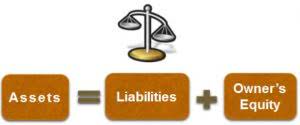Digital files offer the advantage of real-time access to information from anywhere. As your business grows, expanding digital storage is relatively easy. But technical issues such as hardware failures can render your files inaccessible, and digital files introduce new cybersecurity risks.
Are the records connected to property?
- These business records must be available for inspection at all times in the required period.
- The Internal Revenue Service has established some basic record-keeping rules for tax documents.
- If your records are kept manually in a physical form, they should be kept in a legible and well-organised manner.
- Employee plans covers the qualification of pension, annuity, profit sharing and stock bonus plans, IRAs, SEPs, SIMPLEs, tax sheltered annuities, and 457 plans.
Be sure to review your record-keeping obligations and create the record-keeping retention system that will work best for you. The Fair Labor Standards Act (FLSA), which governs minimum wage and overtime rules, requires every employer to keep records for covered, nonexempt employees. Records must be kept for https://www.bookstime.com/ at least 3 years; these records include payroll records, collective bargaining agreements, sales and purchase records. The retention period for other business records—customer records, purchase orders, inventory records, expense records—should be kept as long as you think they are useful to your business.
Why practice proper record retention?

Making Tax Digital, the UK government’s new scheme that aims to simplify the tax system, started in April 2019 for VAT registered businesses. While tax is being moved online, it won’t remove the need to keep your own backups. You must also keep any records relating to overseas income, such as payslips, bank statements or payment confirmations. If you’ve paid how long to keep company records for things such as tools, travel or specialist clothing for work, you may be able to claim for these to reduce your tax bill. You also need to keep records of any income you’ve made personally, cheque stubs and up-to-date bank statements.
Q1. Can a company discard its records once it has completed its tax filing?
- Generally, keep records relating to property until the period of limitations expires for the year in which you dispose of the property.
- At all times, these records should be open to inspection by the directors.
- Companies are encouraged to use accounting software that are on IRAS’ Accounting Software Register Plus (ASR+).
- We can charge a penalty if the company fails to keep or retain records, see EM4650.
- ‘Provisional’ means you’ll be able to get paperwork to confirm your figures later.
Below, we’ll go over legal retention requirements and best practices for records not covered by federal or state laws. Section 388 Companies Act 2006 contains its own period for which a company’s accounting records, see CH11400, must be retained. In most cases, keep business records related to your income tax returns for three years. If you’re a sole trader or in an unincorporated business partnership, you need to retain your business records for at least five years after 31st January of the relevant tax year. These records include all sales documentation, business expenses, personal income, money paid into and withdrawn from the business, as well as VAT and PAYE information if applicable.

- Department of Labor, also have recordkeeping requirements for discrimination claims.
- “We moved to cloud accounting because we wanted to study the growth of the business going back over 10 years and the expenses and profitability.
- Keeping records digitally and in the cloud is having ground-breaking benefits for many companies.
- This could result in IRAS rejecting your company’s claims for capital allowances and expenses.
- Unfortunately, no single, steadfast retention rule applies to all kinds of records, meaning you need to categorize your files and create a document retention policy (DRP).
- For example, GST-registered businesses must keep tax invoices for revenue transactions and records of business asset disposal, which are not required for companies not registered for GST.
You may have to pay capital gains tax if you sell or dispose of certain assets that have increased in value since you got them. Keep records of any benefits you get recording transactions in connection with your job and any lump sum payments not included on your P60 or P45, such as incentive payments or ‘golden hellos’. You should also keep details of any other income or benefits from your job. This includes any tips received, unless your ’employer’ pays them through the ‘tronc’ system, which means it will have deducted tax already. This includes details of anyone who has more than 25% shares or voting rights in your company, can appoint or remove a majority of directors or can influence or control your company or trust.
